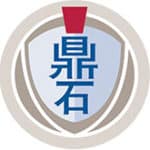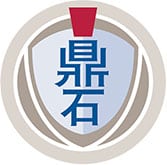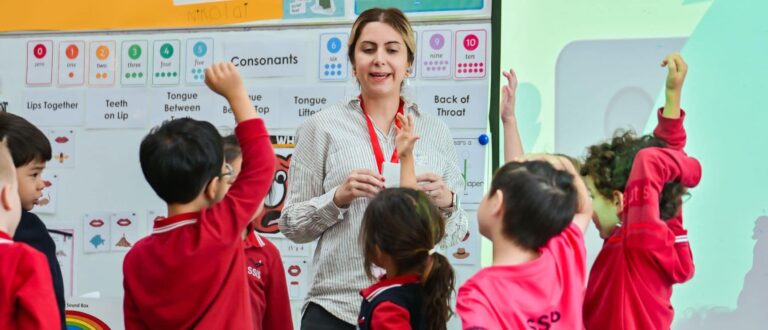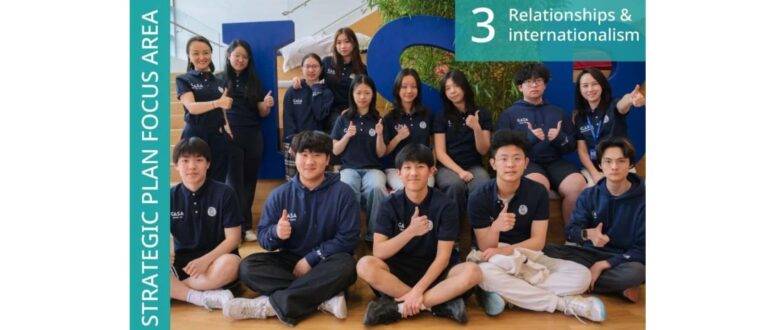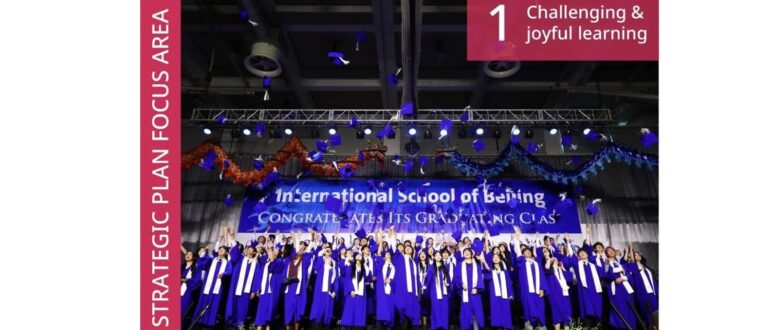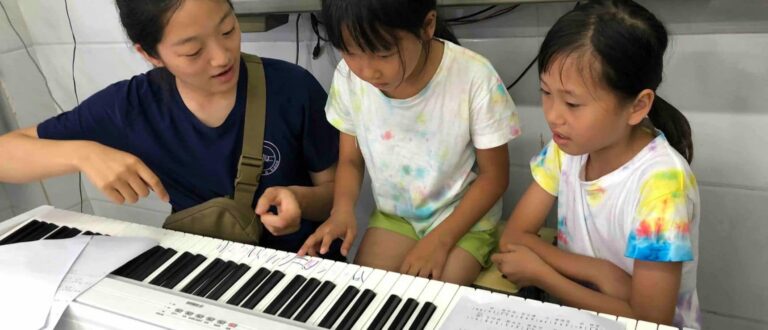Change is the only constant in life and the world current adults grew up in is very distinct from the world today’s youth will be facing in the future.
The World Economic Forum predicts significant changes in work and careers by the year 2030. It also urges everyone—from parents to policymakers, from educators to entrepreneurs, and from leaders to laypeople—to reassess the ways children of today are being educated and brought up to prepare them for an unknown future.
Keystone Academy embraces a dynamic and ever-changing world and reflects this mindset through a more student-centered curriculum. Learning at Keystone is a growth journey characterized by many transitions that flow seamlessly to life outside of academics.
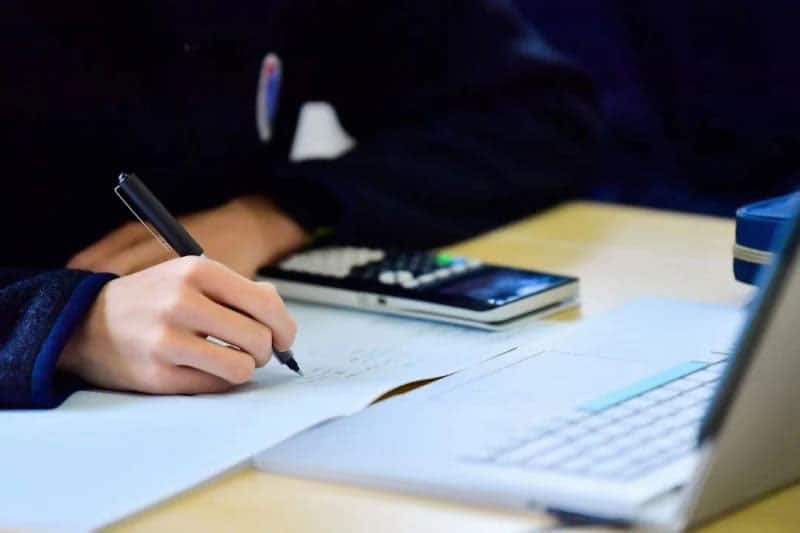
In December 2020, the Keystone Parent and Alumni Relations Office and the Keystone Middle and High School Offices hosted a two-part parent education lecture on the transitions students undergo between middle and high school. Here, Mr. Nick Daniel (Assistant Head of High School and IB Diploma Coordinator) and Ms. Hongwei Gao (IB Middle Years Programme Coordinator) gave detailed information about the IB Middle Years Programme (MYP) and Diploma Programme (DP) and shed light on the myths surrounding these curriculums.
Nick Daniel: When it comes to school and Keystone Academy, in particular, we have been looking at a very different style of education to what we saw 20 years ago or even ten years ago. Our children’s education looks and feels completely different to the ways we adults were educated. In preparation for the challenges of the future, here at Keystone, teaching and learning are more student-centered.
We must realize that student questions often drive the learning. We must realize that learning is no longer passive or content-driven; instead, it is driven by active inquiry. We must understand that memorization is much less important today than the skills of higher-order thinking—skills that will empower our children to solve the problems of the future. We must also understand that classes are much more collaborative, requiring a wider range of communication and relationship skills. Finally, we need to realize that the curriculum is more integrated so that students can make connections and transfer important skills and knowledge across different disciplines.
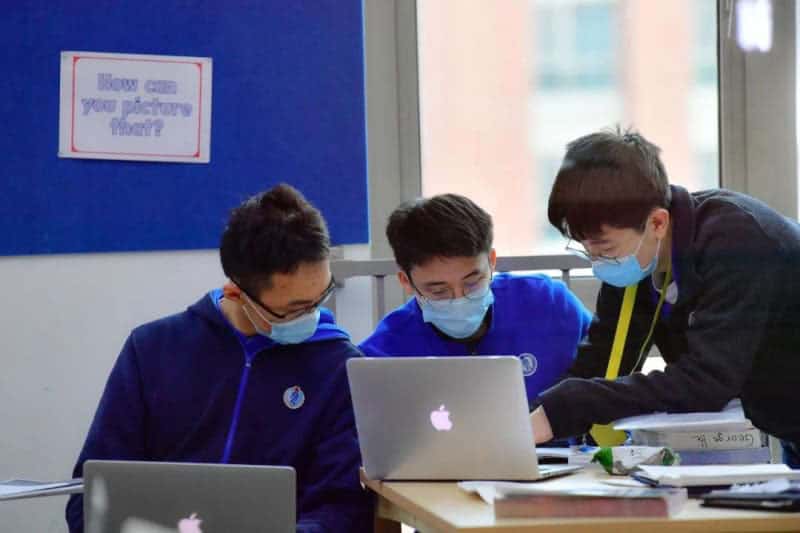
We want to address some important questions about how students develop through middle and high school. How will your child grow socially, emotionally, and academically? What experiences will he or she have? What are the important transitions and how are they managed at Keystone? How would your child become a more independent learner, self-sufficient, and resilient over time? How will he or she be guided through important and often life-altering decisions, such as IB Diploma subject choices and the university application process?
We emphasize the importance of our Keystone mission because this is the key to understanding the journey a Keystone student experiences in his or her time here. It is a journey of many transitions: for example, entering residential life at Grade 9, starting high school at Grade 10, and moving from the Middle Years Programme (MYP) to the IB Diploma Programme (IBDP) at Grade 11.
Grade 10 as an important transitional year
At Keystone, the five-year MYP runs from Grade 6 to Grade 10, while the two-year DP happens in Grade 11 and Grade 12. Grade 10 is a crucial year as students progress toward the final year of the MYP and begin preparations for the DP.
In Grade 10, students have changing academic, social, and emotional expectations. They are expected to learn more independently and manage their time more efficiently. Tenth-grade students conduct their Personal Project (PP), a challenging research-based and self-reflective project that requires a greater degree of independence. Also, in Grade 10, the curriculum is designed to include pre-IB Diploma skills and understanding so that learning becomes intellectually rigorous.
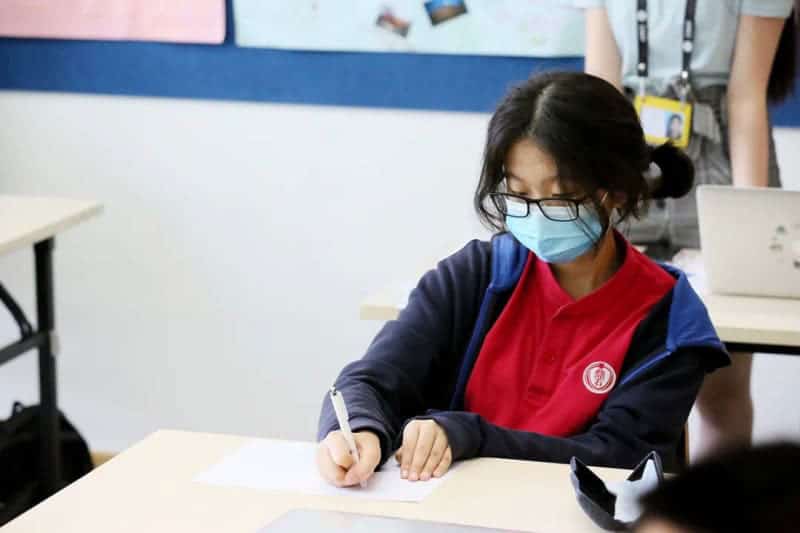
Tenth graders are given greater responsibility and, of course, they also become members of the high school where they interact more with peers in the higher grade levels. This daily contact enhances their sense of responsibility, sets higher expectations, inculcates a strong work ethic, and instills a sense of direction and purpose when thinking about the future beyond school.
The links between the MYP and the DP
Keystone views the MYP to DP journey as a “seamless flow” through the years, supported by many common threads, in which the school’s three keystones are a central part. These threads are:
- Approaches to Teaching and Learning (ATTL). These are the specific skills we identify in different grade levels and how students build and develop them over time. This includes critical and creative thinking, communication, organization, and affective skills such as resilience and mindfulness.
- Development and growth of student independence, resilience, and academic rigor. This happens in many ways, but two clear examples are the PPs in Grade 10 and the Extended Essay (EE) completed in Grade 12. Both are long-term projects completed independently.
- Academic breadth and depth, built into the MYP and the DP through the required selection of eight MYP subjects and six DP subjects.
- Interdisciplinary links. One of the key skills for the future is identifying and transferring one set of skills used in one subject area so it can be used to solve a different problem in a different context. This skill will be a key measure of success at university and beyond. In the MYP, this ability is taught and practiced in all subjects through interdisciplinary units (IDUs). In the IB DP, skills transfer is achieved through Theory of Knowledge (TOK), a course that explores the nature of knowledge itself. All IB DP students take this course.
How DP course choices help students select their university majors or field of study
The DP subjects students choose going into Grade 11 will determine, to a lesser or greater extent, what they will study in college or university. This is why Keystone spends a lot of time counseling students early in Grade 10 to help them make the best choices for their future. DP course selection is divided into four stages:
- Taster Lessons at the start of Grade 10. These lessons walk them through some typical IB DP lessons and activities.
- An IB DP Fair, usually held in January. Students meet with DP teachers and peers from Grades 11-12 for a more in-depth discussion or dialogue. Students will also meet with college counselors to discuss their choices and how they fit with university and college aspirations.
- Presentations to parents on DP course selections and pathways to college in mid-January.
- Course selection in the third quarter of Grade 10.
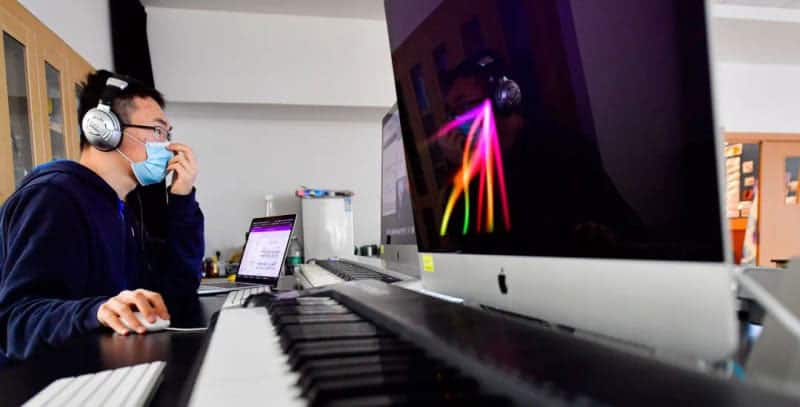
The lead-up to Grade 10 is crucial as families need to ask questions, have important discussions, and make decisions that will involve not only the child’s preferences but also geographical and financial considerations.
The importance of skills for the future in today’s educational context
The Organisation for Economic Co-operation and Development (OECD) stated that “the current century will demand a very different set of skills and competencies from people in order for them to function effectively at work, as citizens and in their leisure time.” The term “21st-century skills” is based on studies and assessments shared by several groups in society. These skills, also called Approaches to Teaching and Learning (ATTL), or ‘skills for the future’ can be categorized into three ways:

- Cognitive skills, or active information processing and retrieval skills. This is the ability to find, sort, compare, and synthesize information through skills such as notetaking, listening, time management, questioning, researching, summarizing, critical thinking, and creative thinking.
- Affective skills, which enable the student to gain some control over mood, motivation, and attitude. This includes skills such as self-motivation, perseverance, resilience, emotional management, and mindfulness. These are essential to empower students to become lifelong learners who can navigate challenges, conflicts, and roadblocks with intellectual, social, and emotional grace.
- Metacognitive skills, which enable students to think about thinking. In other words, to be self-aware about the processes of their own learning to become independent, adaptable, and resilient lifelong learners. This includes skills such as noticing their own and others’ learning and thinking strategies, trying new strategies, and continuously improving learning effectiveness.
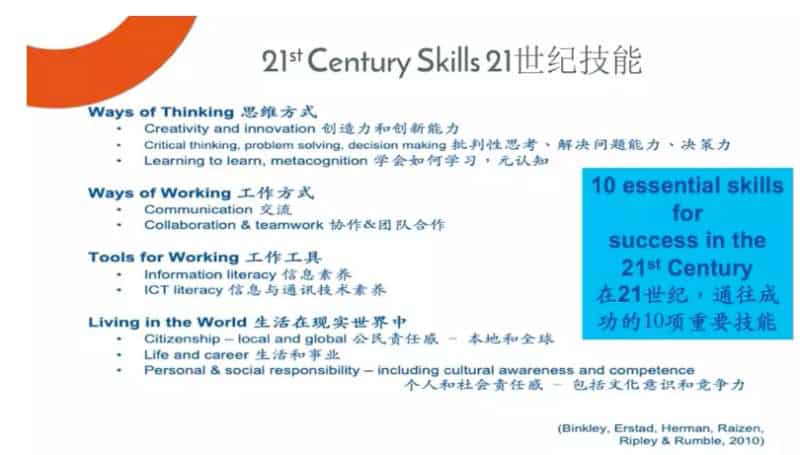
These three categories are embedded in Keystone’s curriculum at all grade levels.
In terms of these skills for the future, what is most important is to increase students’ self-management of learning over time. Keystone aims to ensure students move from being a novice at a particular skill, able to do it with high levels of teacher support, to being an expert where no teacher support is needed, and where they can do a skill independently and in new and unfamiliar contexts.
One of the ultimate goals of the MYP and the DP is that as students become more aware of their own learning processes—for example, how they think, how they make assumptions, how they use logic, or how they address failure—they also become more self-directed to the point where they are empowered independently to manage and develop their own learning. This may be the most important gift we can give our children because it empowers them to become lifelong learners capable of meeting any social, emotional, or intellectual challenge.
Parent Question-and-Answer Session
The transcript below has been edited for brevity.
What are the differences between the MYP and the IGCSE (International General Certificate of Secondary Education)?
Hongwei Gao (HG): Many people think that the exam driven IGCSE is suitable for the DP. In fact, it is not. The DP course is not driven by exams. Many DP subject groups are updating their syllabus. Take for example the Language and Literature and Language Acquisition subject groups. After their curriculums were changed, these subject groups became in line with MYP’s Approaches to Teaching and Learning. The educational philosophy of inquiry-based learning became more consistent. If students are only driven by basic knowledge and exams, they will find it difficult to complete the DP learning at all.
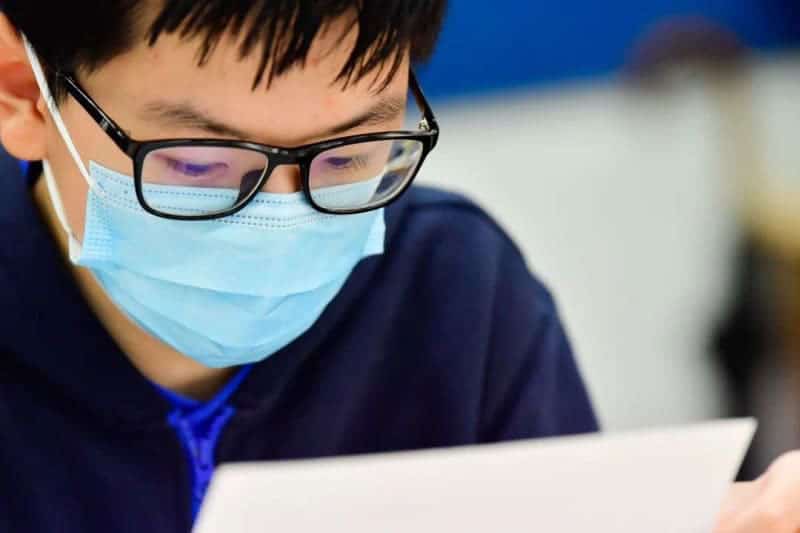
Nick Daniel (ND): The IB DP is not just about exams; it’s about all those life skills that we’ve mentioned before. Perhaps one of the issues with the IGCSE is it relies so much on students memorizing information and passing exams. It doesn’t prepare them for the various skills that make a DP student successful. Thinking of the IB DP in terms of exams is shortsighted. It is also important to be developing lifelong skills such as critical thinking, creative thinking, communication, self-management, and organization.
If we’re just focusing on passing exams, then we’re not doing our students justice. When you look at the criteria across the different MYP and DP subjects, so many of those are not just about content but also the skills that turn our students into lifelong learners.
Do students performing well in the MYP still need external help to sustain their academic performance, especially in science or math?
ND: Many skills developed in MYP Science courses are a precursor to the DP sciences. Students learn basic or foundational science skills in the MYP that they will carry through into physics, chemistry, or biology.
With regard to students attending outside support, the IB DP is already very rigorous. What we’ve been trying to do in the DP and across the school is to give students the skills that they need to learn by themselves.
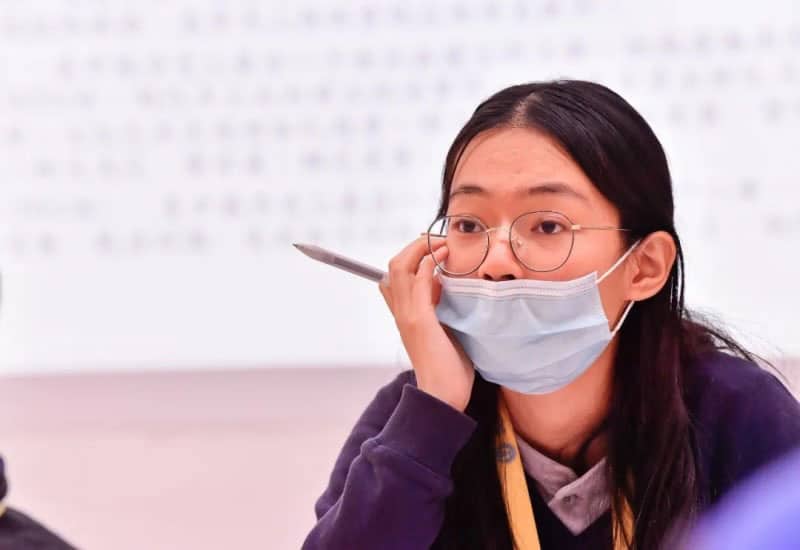
When students attend outside support, they become dependent. This actually slows them down in other subjects because they’re not developing self-management or self-awareness of their learning and the ability to improve their learning processes because they’re relying on a tutor to tell them what to think and how to do things.
I do agree that in some cases, an outsider might be suitable. But I think it’s important to think very carefully about the effects it might have on the child’s overall learning.
How can teachers help students, especially in high school, who have not developed or are in the process of developing their independent learning skills?
ND: Learning does become difficult when students enter Grade 11 or Grade 12 without grasping fully certain key core learning skills. However, there are some areas in which teachers and families can support students. For example, notetaking. I advise on ways to organize notes, such as using subheadings, color-coding information using highlighters, and listing citations and references properly.
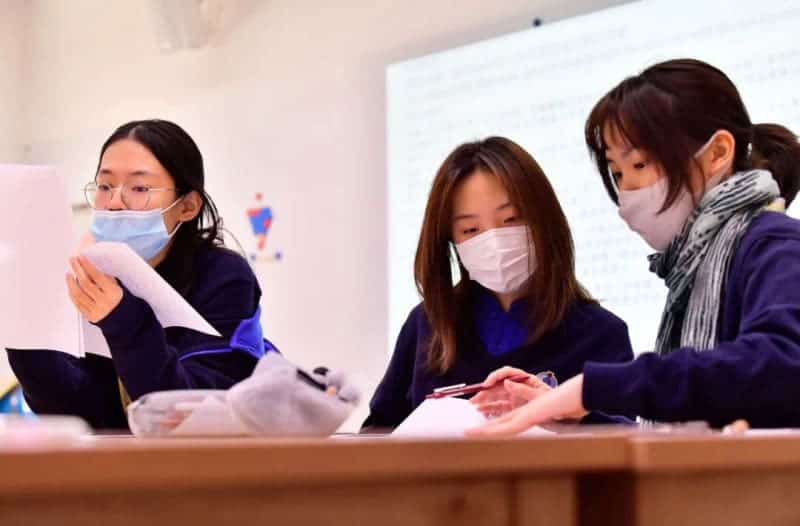
Another important area is to make sure that students know how to balance their schedules, not just managing their academic work but also family time. I also advise students to reward themselves so that if they’ve done a good chunk of work for 2 or 3 hours in the evening, they can give themselves with a 15-minute break or a snack. It’s important that we reward ourselves for the good work we’ve done.
There are numerous and complicated channels for obtaining information, and some of which may even mislead parents. What channels should parents use to obtain relevant information about IB courses?
HG: We will continue to organize similar lectures for parents. This is the most direct way for everyone to get accurate information about the IB course. Besides, parents can log in to the IB official website at any time.
With regard to identifying factual information, I think parents should grow up with their children, and constantly enhance their own critical thinking ability and discernment and become lifelong learners together.
